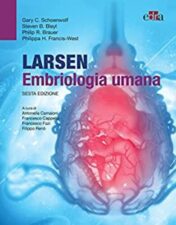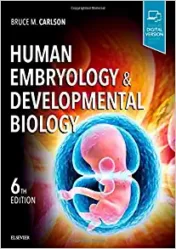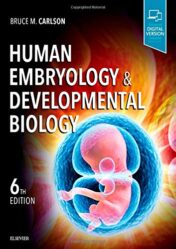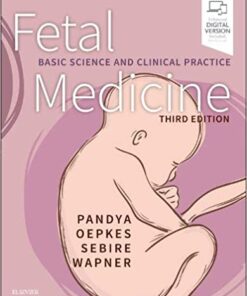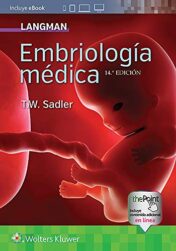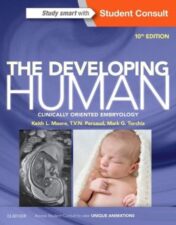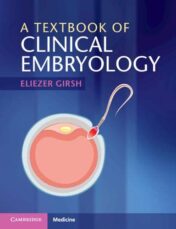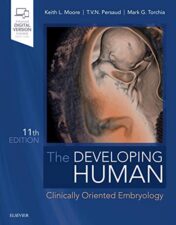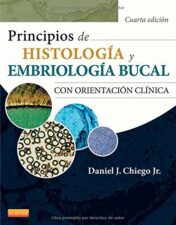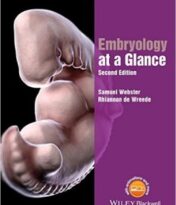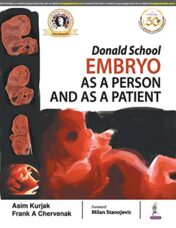Discover the Best Embryology Books to Advance Your Knowledge
Discover the Best Embryology Books at SurgeryBook.net!
Are you looking for the best embryology books to help you understand the development of an embryo? Look no further than SurgeryBook.net! Our selection of embryology books is comprehensive and includes titles from leading authors in the field. Whether you’re a student, researcher, or medical professional, you’ll find the perfect book to meet your needs. With our easy-to-use search feature, you can quickly find the right book for you. Plus, we offer free shipping on all orders over $50. So don’t wait – explore our selection of embryology books today and get the knowledge you need to succeed! Visit SurgeryBook.net now!
Embryology Books
Embryology Books
Textbook of Clinical Embryology, 3rd edition 2022 Original PDF
Embryology Books
Larsen. Embriología humana (6.ª Edición) 2022 epub+converted pdf
Embryology Books
Clinical Anatomy and Embryology: A Guide for the Classroom, Boards, and Clinic 2022 Original pdf
Embryology Books
Embryology Books
Embryology Books
Human Embryology and Developmental Biology 2018 Original pdf
Embryology Books
Microfluidics for Assisted Reproduction in Animals 2021 Original pdf
Embryology Books
Embryology Books
Embryology Books
Embryology Books
Embryology Books
Fetal Medicine: Basic Science and Clinical Practice, 3rd Edition (Original PDF) 2019
Embryology Books
Embryology Books
Embryology Books
Langman. Embriología médica (Spanish Edition) (EPUB + Converted PDF)
Embryology Books
The Developing Human: Clinically Oriented Embryology, 10th Edition
Embryology Books
Embryology Books
Embryology Books
Color Atlas of Embryology (Thieme Flexibooks) (Original PDF)
Embryology Books
Principios de Histología y Embriología bucal con orientación clínica (Spanish Edition), 4e (PDF)
Embryology Books
Embryology Books
Embryology Books
Donald School Embryo: As a Person and As a Patient (Original PDF)
Introduction
Are you looking to advance your knowledge in embryology? Look no further! This article will provide you with a comprehensive list of the best embryology books available. From textbooks to reference guides, these books are sure to help you gain a better understanding of this fascinating field. With detailed explanations and illustrations, you'll be able to learn more about the development of embryos and the science behind it. Whether you're a student or a professional, these books will give you the information you need to stay up-to-date on the latest developments in embryology. So, what are you waiting for? Discover the best embryology books today and take your knowledge to the next level!
Introduction to Embryology: A Comprehensive Guide
Introduction to Embryology: A Comprehensive Guide is an essential resource for anyone interested in learning about the development of embryos. This comprehensive guide provides a thorough overview of embryology, from the basics of fertilization and early development to more advanced topics such as stem cells and cloning. It covers all aspects of embryology, including anatomy, physiology, genetics, and molecular biology.
The book begins with an introduction to the fundamentals of embryology, including the structure and function of the embryo, the stages of embryonic development, and the role of hormones in development. It then moves on to discuss the various types of cells involved in embryogenesis, including gametes, zygotes, and blastomeres. The book also covers the processes of fertilization, implantation, and gastrulation, as well as the formation of the three germ layers.
In addition to providing an overview of the basic concepts of embryology, Introduction to Embryology: A Comprehensive Guide also includes detailed information on specific topics such as stem cells, cloning, and genetic engineering. It also discusses the ethical implications of these technologies and their potential applications in medicine and research.
This comprehensive guide is written in an easy-to-understand style and is suitable for both students and professionals. It is an invaluable resource for anyone interested in learning more about the fascinating world of embryology.
Human Embryology and Developmental Biology
Human Embryology and Developmental Biology is a field of science that studies the development of humans from conception to birth. It focuses on the biological processes that occur during the prenatal period, including the formation of organs, tissues, and systems. This field also examines the genetic and environmental factors that influence the development of an individual.
The study of human embryology and developmental biology has been around for centuries, but it was not until the 19th century that scientists began to understand the complex processes involved in the development of a human being. Since then, researchers have made great strides in understanding how genes, hormones, and environmental factors interact to shape the development of an individual.
One of the most important aspects of this field is the study of the embryonic period, which begins at conception and ends at birth. During this time, the embryo undergoes a series of changes as it develops into a fetus. These changes include the formation of organs, tissues, and systems, as well as the growth and differentiation of cells. Researchers are also interested in understanding how the environment affects the development of the embryo, such as exposure to toxins or radiation.
In addition to studying the embryonic period, researchers in this field also examine the postnatal period, which begins after birth and continues throughout childhood and adolescence. During this time, the body continues to grow and develop, and researchers are interested in understanding how the environment and genetics affect the development of an individual.
Finally, researchers in this field are also interested in understanding how diseases and disorders can affect the development of an individual. For example, researchers are studying how certain genetic mutations can lead to birth defects or other health problems. By understanding these processes, researchers hope to develop treatments and therapies that can help individuals with these conditions.
The Developing Human: Clinically Oriented Embryology
The Developing Human: Clinically Oriented Embryology is a comprehensive and authoritative textbook that provides medical students with an in-depth understanding of human embryology. Written by renowned experts Keith L. Moore, T.V.N. Persaud, and Mark G. Torchia, this book offers a detailed overview of the development of the human embryo from fertilization to birth.
The book begins with a discussion of the of human embryology, including the anatomy and physiology of the reproductive system, gametogenesis, fertilization, and early embryonic development. It then moves on to cover the development of the major organ systems, including the cardiovascular, respiratory, gastrointestinal, urinary, and reproductive systems. The authors also discuss the development of the nervous system, including the brain and spinal cord, as well as the development of the musculoskeletal system.
In addition to providing a comprehensive overview of human embryology, The Developing Human: Clinically Oriented Embryology also includes clinical correlations throughout the text. This allows readers to gain a better understanding of how the development of the embryo can affect the health of the fetus and newborn. The authors also provide numerous illustrations and diagrams to help readers visualize the development of the embryo.
Overall, The Developing Human: Clinically Oriented Embryology is an essential resource for medical students who are studying human embryology. It provides a comprehensive overview of the development of the human embryo from fertilization to birth, as well as clinical correlations to help readers understand how the development of the embryo can affect the health of the fetus and newborn.
Langman's Medical Embryology
Langman's Medical Embryology is a comprehensive textbook on the development of the human embryo and fetus. It is written by Thomas W. Sadler, PhD, and is widely used in medical schools and universities around the world. The book provides an in-depth look at the development of the human embryo from fertilization to birth. It covers topics such as fertilization, implantation, organogenesis, fetal growth and development, and labor and delivery.
The book begins with an introduction to embryology, including a discussion of the history of embryology, the basic principles of embryology, and the different stages of embryonic development. It then moves on to discuss the anatomy and physiology of the developing embryo, including the formation of the placenta, amniotic sac, umbilical cord, and other structures. It also covers the development of the major organ systems, including the cardiovascular, respiratory, digestive, urinary, reproductive, and nervous systems.
The book also includes chapters on genetic disorders, teratology, and prenatal diagnosis. It discusses the various tests used to diagnose genetic disorders, as well as the ethical considerations involved in prenatal testing. It also covers the management of high-risk pregnancies, including the use of ultrasound and other imaging techniques.
Finally, Langman's Medical Embryology provides a comprehensive overview of the clinical aspects of obstetrics and gynecology. It covers topics such as labor and delivery, postpartum care, contraception, infertility, and menopause. It also includes information on the management of common gynecological problems, such as endometriosis, pelvic inflammatory disease, and uterine fibroids.
Overall, Langman's Medical Embryology is an essential resource for anyone interested in learning about the development of the human embryo and fetus. It provides a comprehensive overview of the subject, making it an invaluable resource for medical students, physicians, and researchers alike.
Molecular Embryology: Methods and Protocols
Conclusion
In conclusion, embryology books are a great way to advance your knowledge and understanding of the development of organisms. With so many options available, it can be difficult to know which book is best for you. We hope this guide has helped you discover the best embryology books to suit your needs. Whether you’re looking for an introductory text or a more advanced resource, there’s something out there for everyone. With the right book in hand, you’ll be well on your way to mastering the science of embryology.




